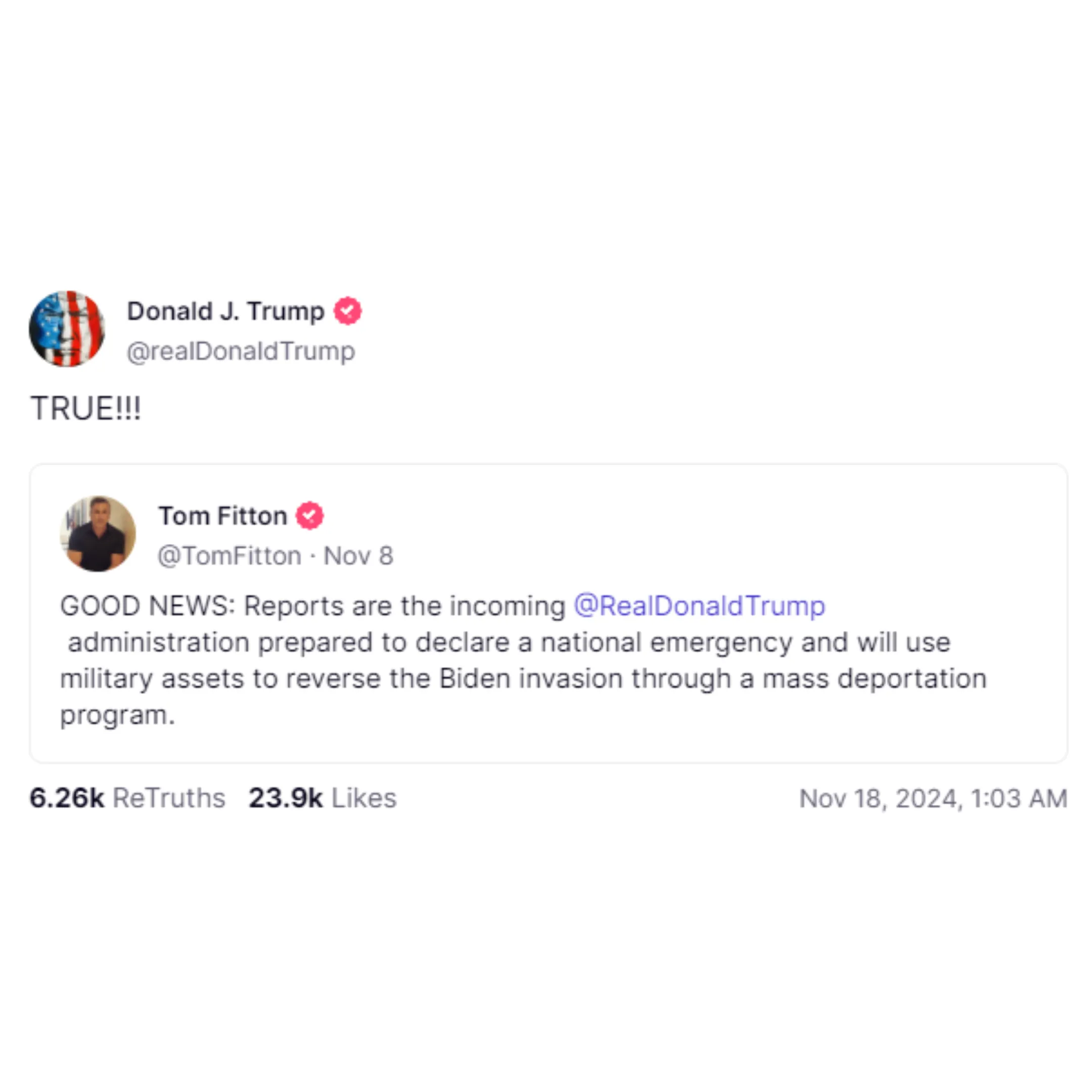
The Trump administration has removed two Democratic members from the National Credit Union Administration (NCUA), a federal agency responsible for overseeing and regulating credit unions in the United States.
The surprise firings of Todd Harper and Tanya Otsuka, both appointed to fixed terms, have sparked significant controversy and concern about the integrity and independence of the country’s financial regulatory framework.
Harper, who was appointed to the board in 2019 and later became chair under the Biden administration, confirmed his dismissal in a public statement on Wednesday. Writing in a post shared online, Harper described the action taken by the White House as inappropriate and damaging to the credibility of the agency.
“The decision of the White House to fire me before the completion of my term is wrong,” Harper stated. “It violates the bipartisan statutory framework adopted by Congress to protect credit union members and their deposits.”
He further warned that such actions risk politicizing institutions that are supposed to operate independently of any administration’s political agenda. “If a President can fire an NCUA Board member at any time,” Harper questioned, “how will we maintain public trust in our nation’s financial services regulatory system?”
The second board member removed was Tanya Otsuka, a Democrat appointed by President Biden. Her term, like Harper’s, was not close to expiring. In a separate statement, Otsuka revealed that she was informed of her termination through email late Tuesday evening.
Expressing alarm at the manner and timing of her removal, she called it “yet another attempt to undermine the rule of law and blatantly ignore Congress and our democratic values.”

Their departures leave only one remaining board member, Republican Kyle Hauptman, who now stands alone at the top of the federal agency responsible for ensuring the safety and soundness of the nation's credit unions, which collectively serve over 135 million members.
The NCUA plays a critical role in the financial system. Its mission includes chartering and regulating federal credit unions, insuring deposits at federally insured credit unions, and overseeing the National Credit Union Share Insurance Fund.
The agency is designed to function as an independent regulator, somewhat insulated from the political winds of Washington. With the abrupt removal of two board members from opposing political ideology, observers worry about long-term damage to the public’s perception of regulatory fairness and impartiality.
White House press secretary Karoline Leavitt defended the administration’s decision, saying the president is the head of the executive branch and has the authority to make personnel changes. “The President is the chief executive of the executive branch and reserves the right to fire anyone he wants,” she stated.
Still, the decision has triggered alarm from legal scholars, financial experts, and members of Congress who see the firings as part of a broader effort by the Trump administration to reassert political control over agencies traditionally considered independent.
The abrupt removals come just weeks after similar terminations at the Federal Trade Commission, where two commissioners were removed for what the administration called inconsistencies with policy objectives.
The string of firings has raised deeper questions about the independence of federal regulators and the stability of the institutions that play vital roles in areas ranging from consumer protection to financial market oversight. While each agency serves a different purpose, the underlying concern is the same — that regulatory decisions could become driven more by political loyalty than by technical expertise or public interest.

Critics argue that the move to remove Harper and Otsuka undermines the legislative intent behind the creation of multi-member boards for federal agencies. These boards were structured to include staggered terms for members of both political parties to avoid sudden swings in policy due to political transitions.
By dismissing members before the end of their terms, critics contend that the administration has circumvented the safeguards designed to keep the agency politically balanced.
“Congress created these boards with long-term appointments so they could operate independently of whoever holds the White House,” a former NCUA official commented privately. “If board members can be fired at will, that independence no longer exists.”
Harper, during his time at the NCUA, focused on strengthening consumer protections, promoting diversity in the financial sector, and ensuring credit union resilience amid economic uncertainty.
He led the agency through the COVID-19 pandemic, overseeing the financial safety of credit unions during a time of widespread economic disruption. His supporters argue that his removal disrupts important initiatives that were designed to improve transparency and accountability in the industry.
Otsuka brought to the board a background in financial regulatory law and consumer finance policy. Her nomination was praised by members of both parties who viewed her expertise as a valuable asset to the NCUA. Her dismissal, like Harper’s, has raised concerns about how the agency will now function with only one board member.
According to current statutes, the NCUA is supposed to operate with a three-member board, with no more than two members from the same political party.
With the current composition now down to one Republican member, questions are swirling about the legality and legitimacy of decisions made by a board lacking its full membership.
Legal experts have pointed out that while presidents do hold significant authority over executive agencies, the law is less clear when it comes to independent regulatory boards like the NCUA. In the past, courts have upheld the independence of such agencies, especially when Congress has specified term limits or removal conditions for board members.

The legal ambiguity leaves the door open for potential court challenges, particularly if the dismissals are seen as undermining congressional intent. Some members of Congress have already begun calling for hearings to examine the scope of presidential authority over independent agencies and to determine whether new legislative safeguards are needed.
Beyond the legal implications, the firings have added to mounting concerns in the financial sector. Credit unions rely on consistent guidance and stable regulation to manage risk and serve their members.
With the leadership of the NCUA suddenly in question, some industry leaders fear that regulatory uncertainty could affect compliance decisions and long-term planning.
“There is always a risk when political turbulence reaches regulatory agencies,” one credit union executive said. “We need to know that the people overseeing us are making decisions based on sound policy, not political payback.”
Supporters of the Trump administration’s decision argue that the President has every right to place individuals in key regulatory positions who align with his policy vision. They contend that prior administrations have also taken steps to reshape agencies through personnel changes and that concerns about overreach are overstated.
But opponents maintain that the method and timing of these dismissals—delivered suddenly, without congressional consultation, and in apparent contradiction to established norms—are indicative of a more troubling trend. They warn that if left unchecked, this could become a template for weakening institutional safeguards in other independent agencies as well.
The firings have also drawn comparisons to historical moments when political interference in federal agencies sparked public backlash. Some legal historians have likened the current situation to past confrontations between the executive branch and regulatory commissions, where attempts to exert political influence were met with resistance from Congress or the courts.
What happens next will likely depend on how the remaining board member, Kyle Hauptman, proceeds. Hauptman has not commented publicly on the firings but now finds himself in a powerful position. With no other board members to confer with, he may face pressure to slow decision-making or take a more transparent approach to ensure confidence in the agency’s work.

Meanwhile, Harper and Otsuka remain vocal in their criticism, framing their removals not just as personal affronts but as part of a broader attack on the independence of institutions that protect Americans' financial well-being.
“I did not expect to be removed for doing my job,” Otsuka said in her statement. “This is about protecting the rule of law and preserving the integrity of our democratic institutions. If we lose that, we lose something much more important than a single position or agency.”
As regulatory uncertainty continues to ripple through the financial and political spheres, the future of the NCUA remains unclear. Whether Congress will intervene or the courts will be asked to weigh in, one thing is certain: the debate over the role and independence of federal agencies is far from over.



